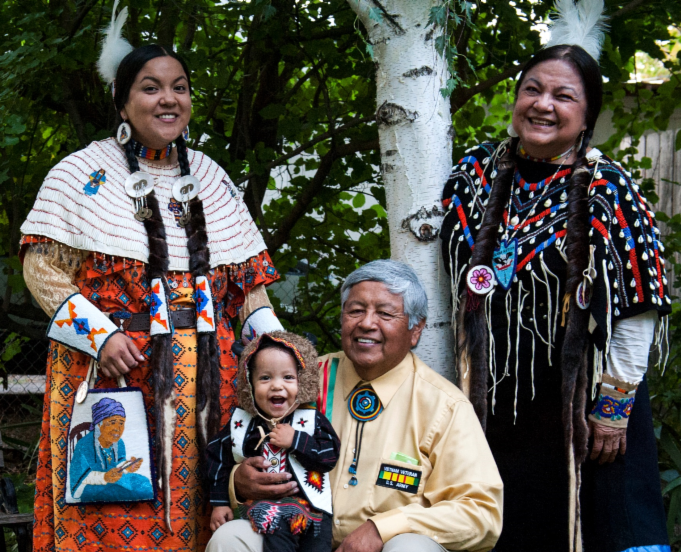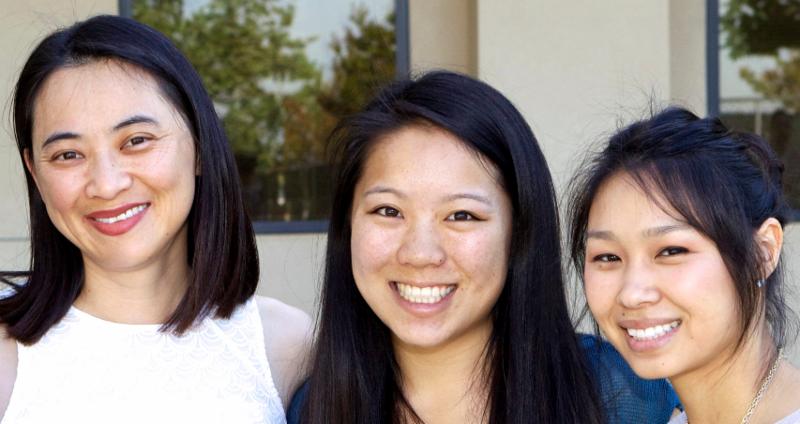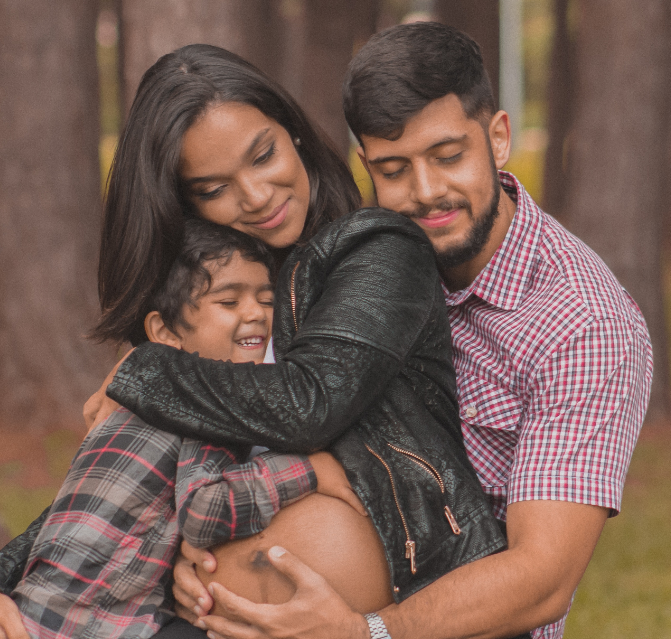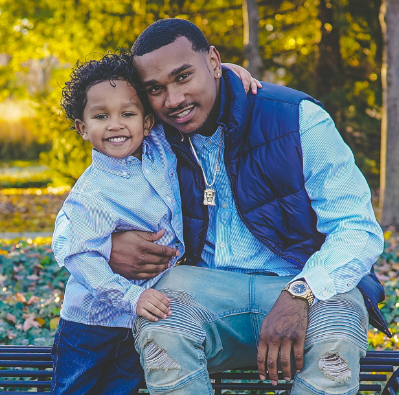 |
Save the date!
Details forthcoming.
|
Communications Corner
Join the
#PreemieChat
for a bilingual #WellnessWed discussion to raise awareness about the 15 million babies born prematurely each year worldwide and 380,000 in the U.S. Details here.
#ThxBirthControl Day is November 13th, 2018. Birth control allows people to plan for a family on their own terms.
Click here for a toolkit to get involved on social media.
As we head into the holidays and lots of family time, skip the small talk. Here is a great resource to spark meaningful health conversations:
#TalkingIsPower
.
|
CoIIN Year 1 Update
Teams are in various stages of
designing, prototyping or testing a preconception health screening tool. Across the four states, there are 15 Pilot Site Teams recruited and launched, which include public health, Healthy Start, clinicians, community groups, social workers and more. Pilot sites include both clinical and non-clinical settings.
The Preconception CoIIN Team measure was defined and the Facility/Baseline assessment survey was done in some form with pilot site partners. Teams upped their knowledge of human centered design and key preconception health topics.
|
Top Takeaways from CoIIN Y1
Ongoing connections with partners like AMCHP and City MatCH are key as they help build repositories of resources around the well woman visit.
Teams have embraced the importance of gathering feedback from consumers, community members, and clinic teams over the course of the project - not just once.Once a group has a chance to go through the human centered design process they find it to be very valuable.
Dedicated team time is essential to keep momentum. Monthly state team meetings have been really helpful.
Teams appreciate assistance in prioritizing when it comes to the different calls and webinars - recording and archiving these resources is key!
Individualized, coaching support tailored to the needs of each team or site is working well. There is a balance between helping states, pushing teams forward AND leaning back to follow their lead.
|
HRSA MCHB InfantMortalityCoIIN.com Platform
The IM CoIIN Web Platform is live now! All members of the team should have received an email from the IM CoIIN DATA Contractor with information about how to sign up for this space - which is a private and secure online platform to promote sharing and collaborative learning within our CoIIN Team and across the IM CoIIN projects.
The platform allows for exchange of information and resources, as well as a space for learning and improvement through data and shared measurement. Click here to see our preconception resources listed. Here, you'll find all the resources developed and archived for our CoIIN. For questions about accessing the portal, please email Katherine Bryant and she will connect you [email protected]
.
As a reminder, all of our preconception resources will continue to be posted to www.BeforeandBeyond.org and fully open source!
|
Preconception Health Bi-weekly Updates
|
Are you signed up to receive
the
CDC's bi-weekly updates on preconception and interconception health? The latest research, articles, new campaigns and resources will be sent straight to your inbox. Email
Cheryl Robbins
([email protected]) with "subscribe." A great resource for everything happening in the industry, across the country - and world!
|
|
|
Stay connected! Follow along and join the conversation:
|
|
ABOUT HRSA IM CoIIN PRECONCEPTION PROJECT: This project is supported by the Health Resources and Services Administration (HRSA) of the U.S. Department of Health and Human Services (HHS) under grant number UF3MC31239-Providing Support For The Collaborative Improvement and Innovation Network (CoIIN) To Reduce Infant Mortality. The grant amount totals $1,494,993. This information or content and conclusions are those of the author and should not be construed as the official position or policy of, nor should any endorsements be inferred by HRSA, HHS or the U.S. Government.
|
|
 |
|
 |
| Gathering with family and loved ones provides an opportunity to learn from one another. This holiday season, set a goal to talk with your family about health. You can't control your genetics, but you can learn about family health histories and proactively focus on reducing your risks. Beyond inheriting genes, families can share environmental exposures, lifestyles, habits, health behaviors - even health knowledge (fact and fiction) can be passed down. Some genetic predispositions can affect fertility and have an impact on future generations. Here are a few resources and conversation starters to help you and family members understand genetics and take an active role in managing your shared health inheritance! |
Passing Down Health Information
For many young adults across a variety of communities, family members are the key provider of health information and guidance. Health education may be passed down from generation to generation, whether the information is accurate or not.
 Including Elders in health conversations is important to better support optimal preconception health knowledge and practices for young adults. From the Show Your Love partnership diversity work, many communities reported that critical preconception health conversations MUST be multi-generational for health behaviors and risks to be understood and for the woman to be supported in taking time to improve her own well-being. These conversations provide an opportunity to examine family health history and document any conditions and details a distant family member may have experienced. Knowledge is (em)-power(ful)! Including Elders in health conversations is important to better support optimal preconception health knowledge and practices for young adults. From the Show Your Love partnership diversity work, many communities reported that critical preconception health conversations MUST be multi-generational for health behaviors and risks to be understood and for the woman to be supported in taking time to improve her own well-being. These conversations provide an opportunity to examine family health history and document any conditions and details a distant family member may have experienced. Knowledge is (em)-power(ful)!
A Healthier You
 The CDC states, "Knowing and acting on your family health history is an important way to protect your health. Collect your family health history and share it with your doctor at your next visit. Your doctor can use it to develop a more complete picture of your health and your risk factors for disease. Together you can work on ways to reduce that risk." The CDC states, "Knowing and acting on your family health history is an important way to protect your health. Collect your family health history and share it with your doctor at your next visit. Your doctor can use it to develop a more complete picture of your health and your risk factors for disease. Together you can work on ways to reduce that risk."
You can use the Surgeon General's web-based tool called My Family Health Portrait to keep track of your information.The Family Portrait takes less than 20 minutes to complete. Have you completed a My Family Portrait? Share it with your loved ones to use! Not sure about your family history? Add to your gift giving wish list a few ancestry tools that can provide health information about potential health risks.
Knowing and Managing
 Most people have a family health history of at least one
chronic disease
. If a close family member has had a chronic disease, you may be more likely to develop that disease yourself. Knowing the signs, symptoms, ages of diagnosis, causes of death, etc. is important. In many cases,
adopting a healthier lifestyle
can reduce your risk for diseases that run in your family. Screening tests, such as diabetes screening,
mammograms
, and
colorectal cancer screening
, help reduce risks.
The CDC has a great resource that covers: Health History Basics, Considerations for Family Planning, Chronic Disease Management, Information for Health Researcher and Professionals.
Click here
.
 Generations of Health Generations of Health
As Dr. Sarah Verbiest stated at the #HRSAMaternalMortality Summit, "Preconception health is the meeting of two generations." As preconception health practitioners,
it is important to include a women's support system and families into dialogues about managing health, and understanding the profound impact her health can have on future generations.
According to a
manuscript in the American Journal of Obstetrics and Gynecology
, "The
prevalence of paternal and maternal genetic conditions that affect pregnancy varies according to many factors, including parental age, medical history, and family history. While some genetic conditions that affect pregnancy are easily identified early in life, others are not and may require additional diagnostic testing. Learning about possible genetic issues in the preconception period is ideal, as knowledge permits patients to make informed reproductive decisions."
 This week, our own Dr. Diana Ramos spoke with Healthline about the importance of mens' preconception health as it relates to their future generations. As a Show Your Love partner in Duval County, Florida put it: Men Show Love, too (click to watch his visual poem)! Understanding how both parents' health, behaviors, fertility, and genetics plays into conception is important for healthier generations (click to read more on that from the CDC). A new British Medical Journal editorial, "Paternal factors in preconception care: the case of paternal age," provides three considerations to provide better preconception health messages to men and why preconception should be a focus for all young adults (click to read). This week, our own Dr. Diana Ramos spoke with Healthline about the importance of mens' preconception health as it relates to their future generations. As a Show Your Love partner in Duval County, Florida put it: Men Show Love, too (click to watch his visual poem)! Understanding how both parents' health, behaviors, fertility, and genetics plays into conception is important for healthier generations (click to read more on that from the CDC). A new British Medical Journal editorial, "Paternal factors in preconception care: the case of paternal age," provides three considerations to provide better preconception health messages to men and why preconception should be a focus for all young adults (click to read).
Providers are trending towards encouraging their patients
to prepare a family health history chart before they arrive at the visit as a way to empower patients to take charge of their health, and also allow them to provide more focused counsel. All young adults should understand genetic risks, it's impact on fertility and birth outcomes, and ways they can specifically reduce risks of complications.
 
Bottom line
Both partners' health behaviors, genetic makeup, and knowledge are critical components that factor into the health of the next generation. |
Genetics, Fertility, and Histories

Pulling from the "Genetic History" section of
the PCHHC Preconception Clinical Toolkit
, Every woman/couple considering pregnancy in the next year should be queried about potential genetic risks. A quick genetic screen can be obtained during a woman's routine care by asking several key questions:
- Do you, your partner, previous children or other relatives have a birth defect, genetic disease or learning disability?
- What is your family's ancestry?
- Have you had two or more miscarriages?
- Have you or your partner had a previous pregnancy end because of a birth defect, genetic disease, or death of a baby before or after birth?
- Will you be 35 years old or older when you plan to give birth?
If at least one member of a couple has a family history of developmental delay, congenital anomalies or other known or suspected genetic conditions, the couple should be offered referral to a qualified health care provider for appropriate counseling and potential testing. Those with risk factors for autosomal recessive diseases linked to race and ethnicity should receive education about the specific conditions and the opportunities of carrier screening. Carrier testing may be offered in your facility or through referral to a genetics specialist or obstetrician/gynecologist.
|
|
Family Health History Tools for Providers
Family Health History Tools for Consumers
|
|
|
 |